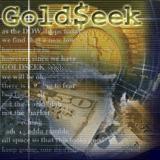

| Visitors Now: | |
| Total Visits: | |
| Total Stories: |

| Story Views | |
| Now: | |
| Last Hour: | |
| Last 24 Hours: | |
| Total: | |
Gold And The Cold War
Darryl Robert Schoon
Source: GoldSeek.com

There are now two great nations in the world, which starting from different points, seem to be advancing toward the same goal: the Russians and the Anglo-Americans… Each seems called by some secret design of Providence one day to hold in its hands the destinies of half the world.
Democracy in America, Alexis de Toqueville, 1835
De Toqueville’s amazing prediction in 1835 about the destinies of Russia and the Anglo-Americans was every bit the equal to those made by his illustrious French predecessor, Michel de Nostradame.
In the 1830s, Russia was a czarist empire and the US had fought its war of independence from England only 60 years before. The idea of Russia and the Anglo-Americans ..starting from different points advancing toward the same goal.. called by some secret design of Providence..to [each]hold .. the destinies of half the world was an extraordinary prediction, especially in 1835.
Nonetheless, 110 years later, just as de Toqueville predicted, Russia and the Anglo-Americans each advancing towards the same goal would become enemies in what would become known as the Cold War, an extraordinarily costly decades-long battle for economic hegemony and world dominion in the second half of the 20th century.
In 1835, deToqueville called the two great nations, Russia and the Anglo-Americans. DeToqueville knew full well the difference between England and America. Nonetheless, de Toqueville made no mistake when he described the future Anglo-American alliance as one nation.
It was a prescient prediction of a coming, close relationship between England and the US, a relationship that would extend British geopolitical influence but would bankrupt America in the process and cost it its once great heritage as a beacon of freedom and liberty in the world.
EMPIRE, EMPIRE AND MORE EMPIRE
When de Toqueville made his prediction in 1835, both Russia and England were already empires. By the 18th century, the Tsardom of Russia had become the huge Russian Empire, stretching from the Polish-Lithuanian Commonwealth eastward to the Pacific Ocean.
http://en.wikipedia.org/wiki/History_of_Russia
The British empire, however, would become far larger and ultimately cover almost a quarter of the world’s land area. By 1922 it was estimated that England ruled 20% of the world’s population and was the largest empire in history.
http://en.wikipedia.org/wiki/British_Empire
The US, unlike Russia and England, had no interest in empire. Indeed, the democratic ideals of America were antithetically opposed to the imposition of power over others, let alone nations.
I have never been able to conceive how any rational being could propose happiness to himself from the exercise of power over others.
Thomas Jefferson
America’s participation in the Anglo-American pursuit of empire one century later would have catastrophic results for America. Cut loose from its moral anchor as a beacon of freedom, America would gain wealth and power but would lose its soul in the process; and, in the end, America would also lose much of its wealth and power as well.
Although, in the end, America would deny its democratic past to pursue the fruits of empire, it would not escape the costs, both financial and moral, in so doing:
Every ambitious would-be empire clarions it abroad that she is conquering the world to bring it peace, security and freedom, and is sacrificing her sons only for the most noble and humanitarian purposes.
That is a lie, and it is an ancient lie, yet generations still rise and believe it! If America ever does seek Empire, and most nations do, then planned reforms in our domestic life will be abandoned, States Rights will be abolished in order to impose a centralized government upon us for the purpose of internal repudiation of freedom, and adventures abroad.
The American Dream will then die—on battlefields all over the world—and a nation conceived in liberty will destroy liberty for Americans and impose tyranny on subject nations.
George S. Boutwell, (1818-1905),Secretary of the Treasury under President Ulysses S. Grant, Governor of Massachusetts, Senator and Representative from Massachusetts.
continue at GoldSeek.com:




Knowing what is coming I have made sure to keep a few precious metal pieces of jewelry, a bracelet with a number of small gold links. Each link will be worth something and an easy means of on hand trade that could save your life.
Mariea Vox